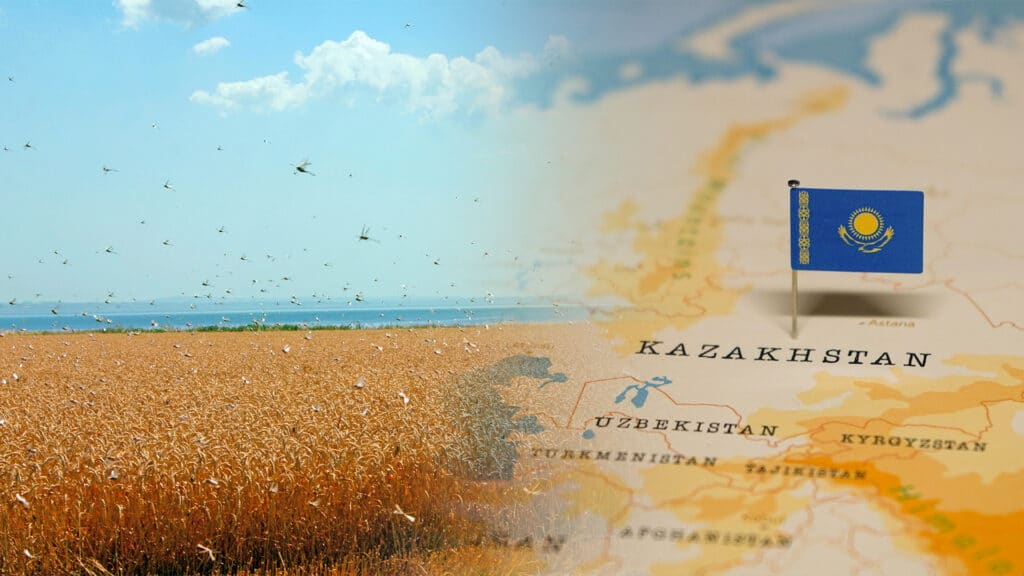Kazakhstan wants to get rid of locusts by making a profit from them

Kazakhstan plans to make a profit from processing and exporting the locusts to get rid of the insects and create an additional source of income, the APK Novosti news agency reported.
The media outlet cited research done by the Kazakh Research Institute for the Protection and Quarantine of Plants and scientists from Germany, who have proven that the locusts can be collected and paralyzed.
«More than two billion people in the world eat locusts. This means that the export of locusts as a food product has the potential for us,» said Chair of the National Agrarian Science and Educational Centre Bauyrzhan Kassenov.
Experts believe that the locust outbreak might be solved if there is the production of products made from these insects. The locusts themselves might be collected and immobilized with the help of special devices, scientists said.
«We aren’t offering Kazakhstanis to eat the locusts but we do believe that we can start processing and exporting the new product,» Kassenov said.
According to the expert, the UN Food and Agricultural Organization has proven that locusts are safe for consumption. Given that the world’s population is going to exceed 9.1 billion people by 2050, the locusts may become a valuable source of protein.
The edible insect market has been rapidly growing in countries such as the U.S., Belgium, France, the U.K. and Vietnam. This segment is expected to exceed $1.5 billion by 2026 and Kazakhstan wants to take advantage of this potential, exporting the locust to countries where this food is popular. For example, in Thailand, one kilogram of locusts costs $7 to $11, while one kilogram of meat costs $0.80 to $3.
If Kazakhstan’s experience in collecting the locusts is proven to be successful it can be used by the UN FAO as a measure to counter the insect outbreak.
On June 19, authorities of the Aktobe region reported a huge influx of locusts from Russian Orenburg. The country’s Ministry of Agriculture has requested Russia to strengthen its control over the insects at the border. Kazakhstani authorities conducted chemical treatment of 1,5 million hectares of land, including 240,000 hectares in the Kostanay region and 469,800 hectares in the Aktobe region.

